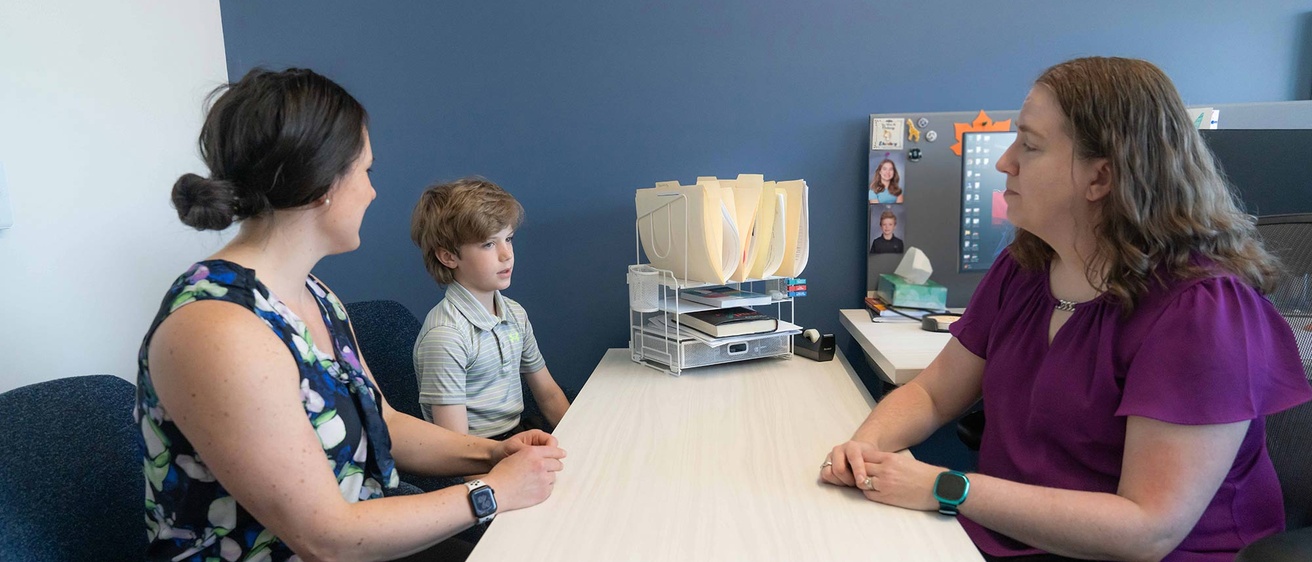The University of Iowa 's School Psychology program leads to a PhD and an EdS in school psychology. The School Psychology program trains health service psychologists to be outstanding ethical and multiculturally competent scientist-practitioners that promote psychology as a profession for the betterment of the human condition.
We strive to address the academic, developmental, behavioral, and mental-health needs of students we serve from prevention to intervention.
The School Psychology program focuses on issues facing children, adolescents, and their families. The program offers a PhD and an EdS degree available to students who are enrolled. Your program advisor will help guide you through the requirements for degree completion.
Faculty and Research
School Psychology faculty focus on exploring the cognitive behaviors and mental health of children and their families, training school mental health professionals, and psychoeducational interventions.
To see associated faculty, please: Visit Faculty Listing
Areas of Expertise:
- Developmental and learning disabilities
- Twice exceptionality
- Telehealth
- Challenging behaviors
- Rural medicine
- Pediatric psychology
- School psychology
- Autism
- Poverty and its impact on children and families
- Access to education
As part of the School Psychology program, you will work closely with community partners including Iowa schools and AEAs, the Belin-Blank Center, the University of Iowa Hospitals and Clinics, and the Scanlan Center for School Mental Health. You will also work collaboratively across College of Education programs, learning and researching alongside Counseling Psychology, Rehabilitation and Counseling Education, and Special Education graduate students.

Belin Blank Center
The Belin-Blank International Center for Gifted Education and Talent Development (B-BC) is a comprehensive center focused on nurturing potential and inspiring excellence through myriad programs and services.
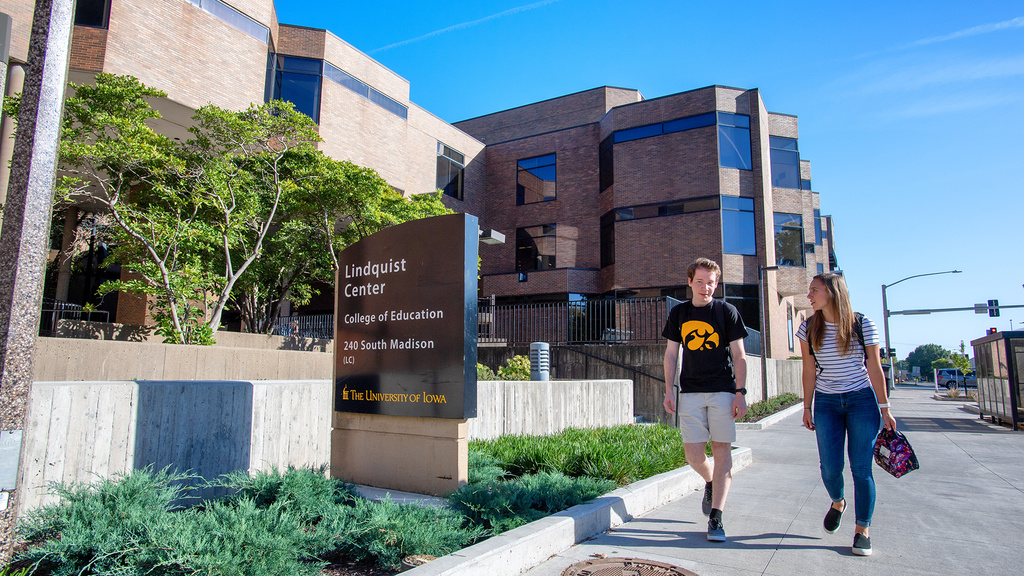
Multidisciplinary Pathways to Recruit, Train, and Retain School Mental Health Providers in Iowa (MPath)
MPath, will address shortages in school-based mental health services professionals (MHSPs) available in high-need schools.
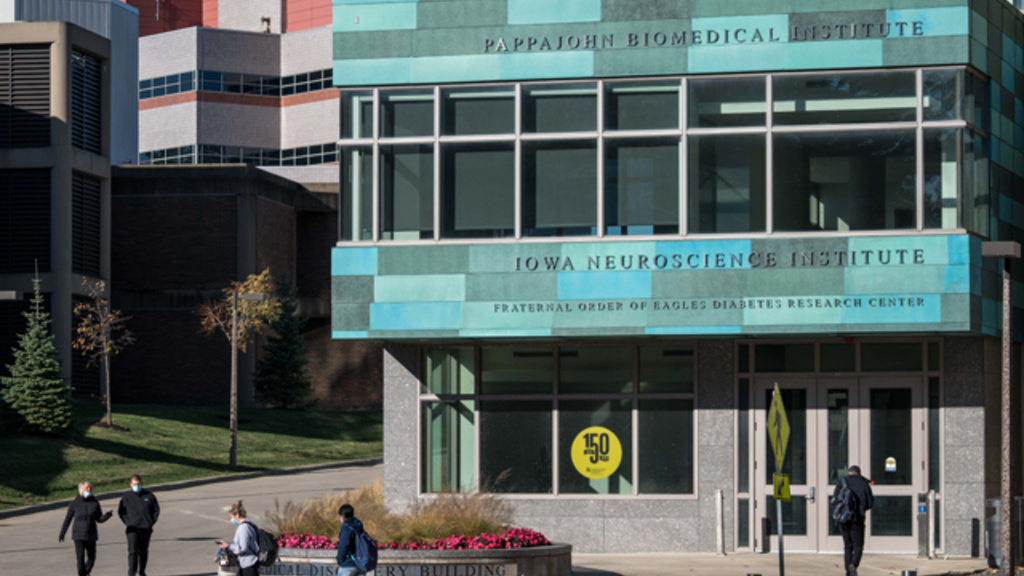
University of Iowa Hospitals and Clinics
UI Health Care is Iowa’s only comprehensive academic medical center. This includes an adult tertiary care hospital and children’s hospital, and a network of 200-plus outreach clinics and programs.

Scanlan Center for School Mental Health
The Scanlan Center for School Mental Health expands support for mental health to Pre-K-12 educators and schools across the state. This includes training, resources, and outreach to support student mental health so all students, educators, and schools can be successful and resilient.
Admissions and Application
The priority application deadline is December 1. Faculty review of application materials commence in January and interviews are scheduled by invitation in February. If you are interested in a direct admit to the EdS program please contact Dr. Ann Santos at ann-m-garcia-santos@uiowa.edu.
Admission Requirements
Applicants must meet the admission requirements of the Graduate College:
- A bachelor’s degree from a Regionally Accredited American College or University, or an equivalent degree from another country as determined by the Office of Admissions.
- A minimum grade-point average (GPA) of 3.00, or the foreign equivalent as determined by the Office of Admissions.
- Graduate GPA of 3.50 or better on a four-point scale
- The Graduate Record Exam (GRE) General test – verbal and quantitative - is optional.
- English Proficiency Requirements (international applicants)
Required Supplemental Materials
Copies of official transcripts from all previous college work
Statement of your personal career objectives containing the following:
- Reasons for seeking entry into the University of Iowa School Psychology doctoral program
- Professional aspirations
- Description of child/adolescent experiences (e.g., teaching, counseling, testing, etc.)
- Educational experiences relevant to your professional goals; credentials and degrees earned
- Research interests and experience(s)
Three letters of recommendation. These letters generally come from professors or direct supervisors, on their respective letterhead. Letters of recommendation should speak to the following:
- Aptitude to complete a graduate program
- Interest and commitment to serving children, adolescents, their families, and the environments within which they function
- Communication skills (written and oral)
- Ability to interact professionally and effectively with peers, supervisors, children, youth, and families
- Ability to work independently
- Ability to work in teams, to be able to problem-solve, to be open to different perspectives, etc.
Graduate Record Exam Scores - GRE (optional)
- The University of Iowa’s School Psychology doctoral program does not apply a definitive cutoff for the GRE score. Historically, students accepted to our program have earned scores at or above the 61st percentile on both the Verbal and Quantitative sections of the GRE.
- Persons scoring below these criteria are encouraged to provide a written statement justification for why their scores do not fully reflect their academic abilities.
Updated CV or resume
Apply Now
Start your application! Please review the requirements and supplemental documents for your degree option before starting.
After you submit your application, we'll send you a HawkID and password to review the status of your application online using our online student record system, MyUI.
Accreditation
The University of Iowa School Psychology Doctoral program is Accredited by the American Psychological Association (APA), on Contingency. The date of expiration is March 4, 2030. Questions related to the program’s accredited status should be directed to the Commission on Accreditation:
Office of Program Consultation and Accreditation
American Psychological Association
750 1st Street, NE, Washington, DC 20002
Phone: (202) 336-5979 / TDD:202-336-6123; E-mail: apaaccred@apa.org
Web: https://accreditation.apa.org
The Educational Specialist (EdS) graduate program in School Psychology has intentionally designed its course offerings, program sequence, research components, and supervised practical experiences to align with the professional preparation standards outlined in the National Association of School Psychologists (NASP) Standards of Accreditation for Graduate Programs in School Psychology. Although the program is not currently accredited by NASP, it is committed to meeting all required criteria. The University’s EdS-level School Psychology Program will apply for candidacy through NASP as soon as possible.
State Credentialing
The school psychology program at The University of Iowa is not Iowa Department of Education credentialed as it is a new program. Therefore, students who want to be eligible to practice in the state of Iowa must pass the Praxis II exam in school psychology and become nationally certified (attain the Nationally Certified School Psychologist credential).
Program Resources
News
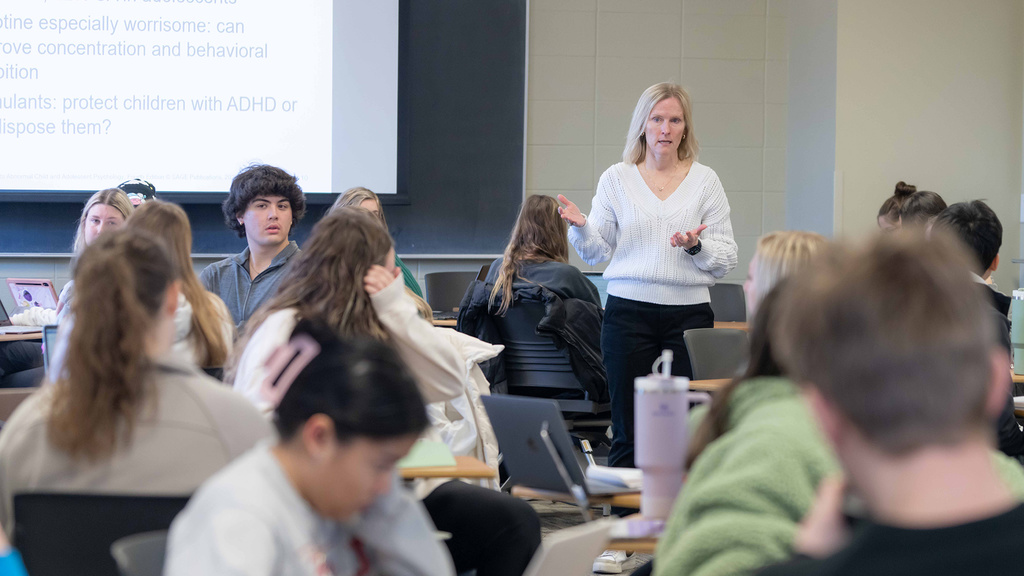
College of Education launches new undergraduate counseling major

College of Education faculty awarded $5.3 million national mental health grant
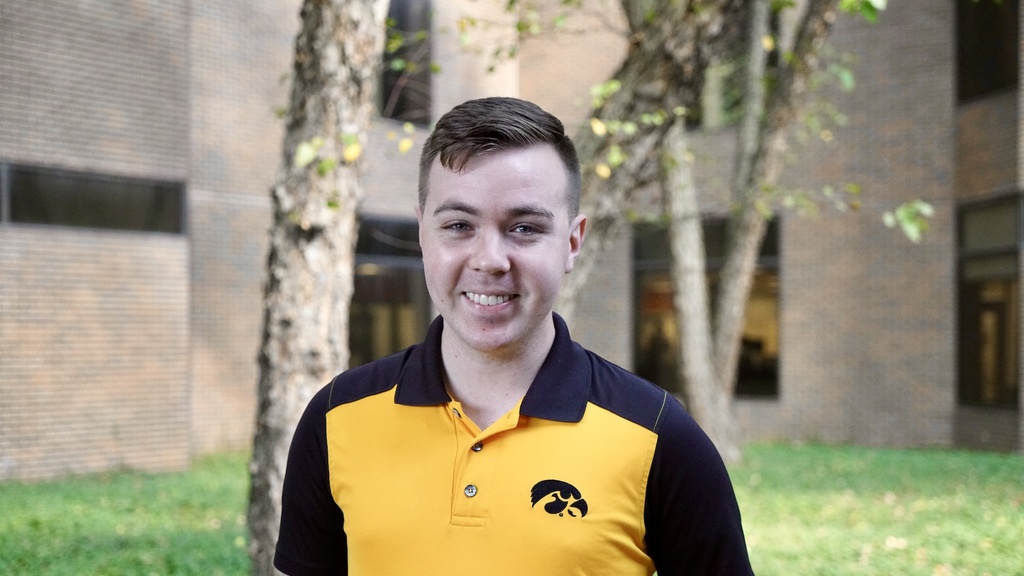
From Music to Mentoring: Veteran Pursues Career in School Psychology
Request Information
Contact Us
Ann Santos, Program Coordinator
N304 Lindquist Center
319-467-3085
ann-m-garcia-santos@uiowa.edu
Application questions can be directed to:
Anne Sparks, Graduate Student Affairs Manager
319-335-2146
anne-sparks@uiowa.edu
We look forward to receiving your application!
Follow us on Facebook!
